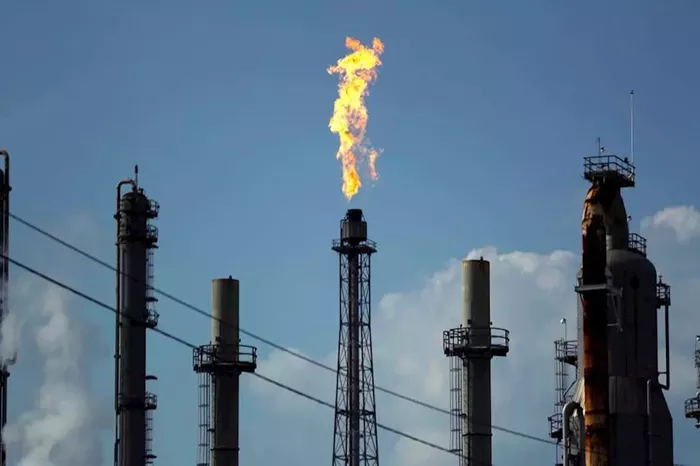In a significant market shift, benchmark crude oil futures experienced their largest one-day drop in over two years, falling after Israel launched limited retaliatory strikes on Iran. These attacks primarily targeted air defense systems and missile production facilities across three Iranian provinces, largely sparing energy infrastructure and alleviating fears of disruptions to global oil supplies. Analysts note that this restraint leaves room for de-escalation in the ongoing conflict.
In a notable change of tone, Iran’s Supreme Leader, Ayatollah Ali Khamenei, has dialed back aggressive rhetoric and refrained from discussing immediate retaliation.
However, commodity analysts at Standard Chartered view the situation with caution. While Israeli missile strikes did not directly target energy infrastructure, the country’s oil and gas facilities were not entirely unaffected. It reported that Israel utilized precision air and drone strikes aimed at air defense systems crucial for protecting key oil and gas sites, alongside military locations linked to Iran’s nuclear and missile programs.
Key targets included the Abadan oil refinery, the Bandar Imam Khomeini petrochemical complex, the Tange Bijar gas field, and the southern Bandar port. Israeli media indicated approximately 20 targets were hit. Standard Chartered warns that damage to Iran’s air defenses could heighten vulnerability to future assaults, a risk that the market seems to be overlooking.
In response to the recent events, oil prices have started to recover from Monday’s losses. As of Wednesday afternoon, Brent crude for December delivery was up 2.1%, trading at $72.50 per barrel, while the West Texas Intermediate (WTI) crude gained 2.0%, reaching $68.62 per barrel. This increase follows a report from the U.S. Energy Information Administration (EIA) detailing declines in gasoline and middle distillate inventories for the week ending October 25.
The EIA reported a drop of 2.7 million barrels in gasoline stocks, with production averaging 9.7 million barrels per day, compared to an inventory build of 900,000 barrels the previous week, during which production was higher at an average of 10 million barrels per day. Middle distillate inventories also fell by an estimated 1 million barrels, with production averaging 4.9 million barrels per day.
Last week, Standard Chartered revealed that global oil demand reached a record high of 103.79 million barrels per day in August, surpassing previous forecasts by about 450,000 barrels per day. This marks the third consecutive month of setting new demand highs, with an estimated growth of 1.32 million barrels per day in August.
Although this demand growth is slower than in previous post-pandemic Augusts, it remains robust. Significant demand increases were noted from South Korea (219,000 bpd), Italy (185,000 bpd), Saudi Arabia (117,000 bpd), Turkey (99,000 bpd), and Spain (88,000 bpd). Consequently, Standard Chartered has adjusted its 2024 global demand growth estimate upwards to 1.45 million barrels per day, reflecting the unexpected growth in August.
European Gas Prices Rally Amid Supply Concerns
In a related development, European gas prices have seen an unexpected surge as markets react to recent supply outages in Norway and the U.S. According to data from Gas Infrastructure Europe, EU gas inventories stood at 111.964 billion cubic meters on October 27, reflecting a week-over-week increase of just 2 million cubic meters. Standard Chartered indicates that the recent trend of weekday withdrawals and weekend injections suggests that the seasonal peak in inventories may have already been reached or is imminent.
Concerns regarding the timing of inventory withdrawals, along with ongoing security issues in the Middle East and uncertainties surrounding Russian gas flows, have contributed to rising European gas prices. On October 26, front-month TTF prices reached a 10-month high of EUR 43.68 per megawatt-hour. The contract settled at EUR 42.519/MWh on October 28, marking a week-over-week increase of EUR 2.495/MWh, or 6.2%. Year-to-date, both EU and UK gas prices have risen by over 30%, closely trailing the year-to-date performance of gold.
Related topic:
Oil Prices Rebound Amid Potential OPEC+ Production Delay
Tensions Rise Between Dangote Refinery and Petroleum Marketers in Nigeria

